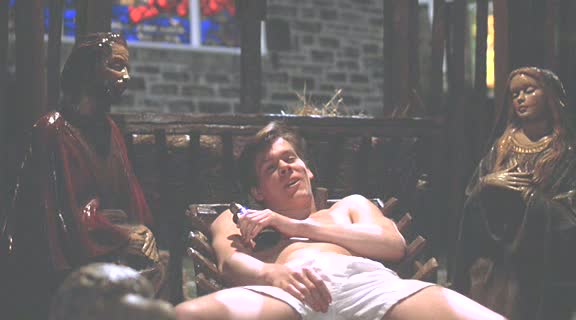(Inspired by Tim Challies)
1. THE COST TO YOUR SOUL
If you are consumed with secular activities and unwilling to devote merely one day a week to God, you have every reason to be concerned with the state of your soul. God promises that if he has saved us we will gain new passions and new affections. We will have not only the ability but also the desire to replace sin with holiness, to replace worldliness with sanctity.
2. THE COST TO YOUR NEIGHBOR
Even those who know next-to-nothing about the Christian faith know this: Christians are commanded to “love God with all their heart, soul, strength, and mind.” Just like Jesus, Christians are to serve their heavenly father. Of all people, Christians should know that violating the Lord’s Day exacts a high cost — the cost to their bodies, to their souls, to their mental well-being, to their dignity, to their future. A vast amount of the worldly activities you enjoy on Sunday is done by people against their wills.
3. THE COST TO YOUR CHURCH
At a time when the Christian church is crying out for more and better leaders, an entire generation of young men and women are infantilizing themselves by not setting the Lord’s Day apart. They constantly choose secular activities over God and their spiritual growth is stunted. For the sake of your church, stop breaking the Sabbath.
4. THE COST TO YOUR FAMILY
There is scarcely a pastor ministering today who has not seen a family crumble and fall under the weight of treating Sunday like Saturday. Men are tearing apart their families for the sake of fun; women are shunning God’s word to create family moments. Children are being exposed to worldliness through the trails their parents leave behind. Fathers are inviting Satan into the home by their commitment to what God forbids and what Satan loves. For the sake of your family, stop breaking the fourth commandment.
5. THE COST TO YOUR MISSION
The Lord’s commission is an urgent commission because it is a matter of eternal life and death. Time is short and hell is forever, which makes the Christian’s business an urgent business. And yet so many Christians are distracted by something as trivial as the NFL or a trip to the beach. Their attention is arrested, their energy depleted, their usefulness undermined. Don Whitney says it well: “If there are any regrets in Heaven, they will only be that we did not use our earthly time more for the glory of God and for growth in His grace. If this is so, this may be Heaven’s only similarity with hell, which will be filled with agonizing laments over time so foolishly squandered.” For the sake of your mission, keep the Lord’s Day holy.
6. THE COST TO YOUR WITNESS
Christians are called to be different, to stand out from the rest of the world by their desires and by their behavior. Christians are to put sin to death and to display the power of God in removing and destroying all competitors. And yet so many Christians have had their witness shattered when the sordid truth comes out and when others learn that they profess faith in Christ on the one hand, and are worldly minded on the day devoted to the Lord. Parents undermine the gospel they have been telling their children, pastors undermine the gospel they have been preaching to their congregations. For the sake of your witness, stop breaking the Sabbath.
7. THE COST TO YOUR SAVIOR
By making light of the Lord’s Day you are making light of the death of Jesus Christ. If you are a Christian, you acknowledge in your profession of faith that the cost of forgiveness was nothing less than the death of God’s beloved Son. Jesus suffered and died for your sin. How can you, as a Christian, then toy with your sin and take it lightly? How can you cling to it? As Spurgeon says with his customary eloquence, “Sin has been pardoned at such a price that we cannot henceforth trifle with it.” For God’s sake, keep the Lord’s Day holy.
Of course, the New Calvinist, Challies, did not write about the Lord’s Day. His subject was pornography, which is a sin that has enormous implications for our society. But are violations of the seventh commandment necessarily more heinous than those of the fourth commandment? The history of Israel (think David and Bethsheba) suggests otherwise. In which case, the New Calvinists may exhibit a moralism (or understanding of sanctification) that is remarkably ignorant of the markers of Reformed Protestant piety.
Of course, this doesn’t mean that Challies has no point about pornography. But I do wonder if porn would be less prevalent in Christian circles if the Lord’s Day received more attention. As I understand the broken windows policies that turned New York City around, if you police the small stuff like trash, graffiti, and broken windows, people notice that little things matter and so big crimes like murder and theft go down. If the church had more of a corporate sense of holiness by keeping the Lord’s Day holy, attending two services, removing American flags from the church, singing more Psalms, avoiding business activities, enjoying a day of rest in simple ways, maybe other incidents of violating God’s law would decrease. That analogy, of course, breaks down if the fourth commandment is more basic to Christian devotion than the seventh commandment. But no one said sanctification would be easy.





